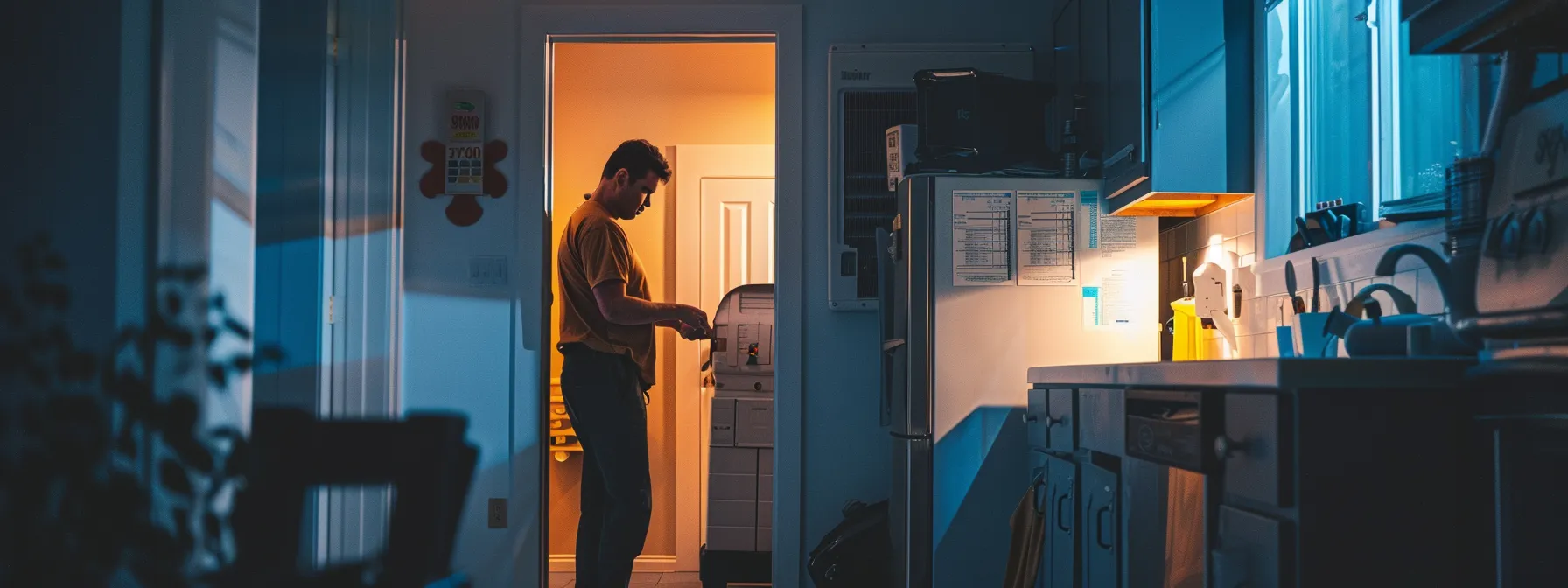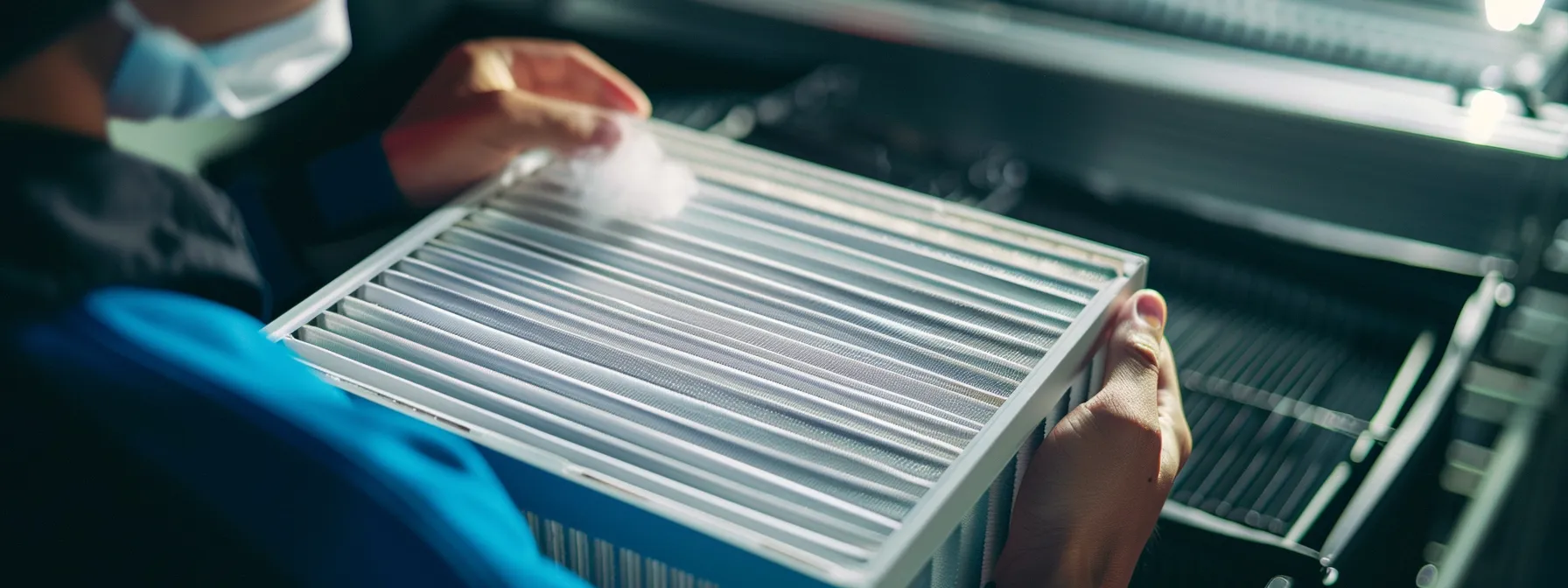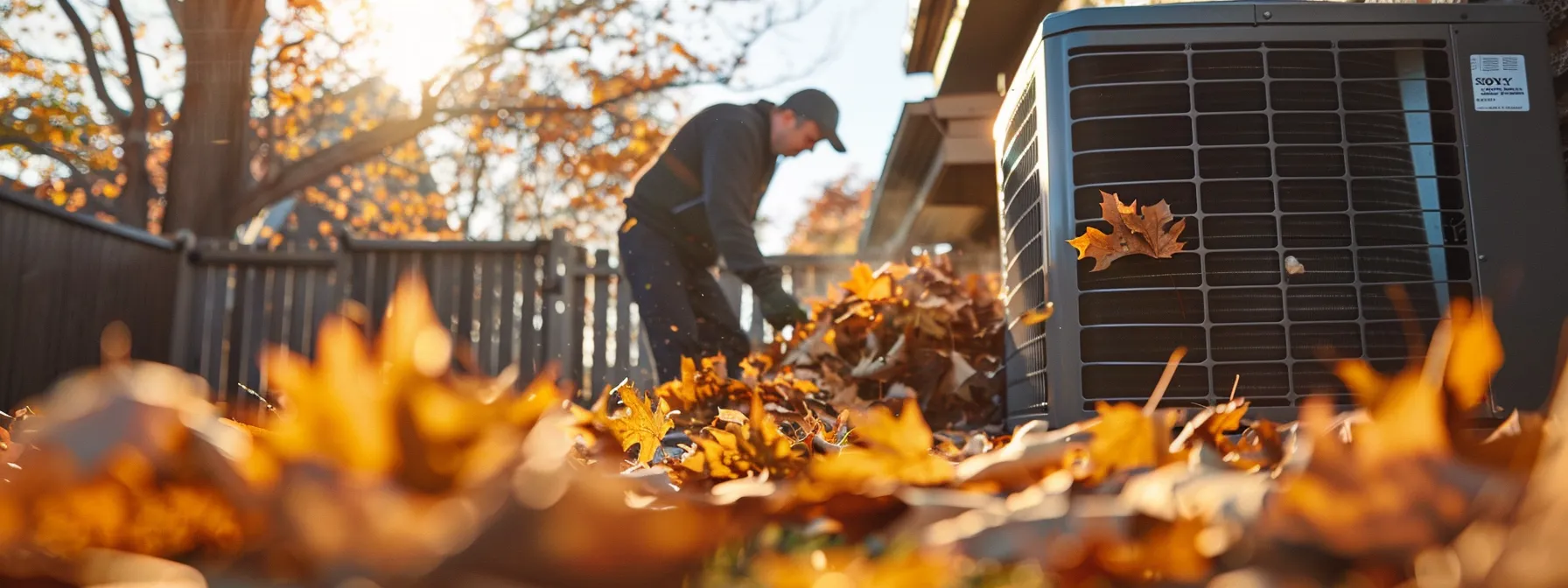Elevate Your Home Comfort With Efficient HVAC Maintenance

Is your HVAC system ready to keep your home comfortable all year long? Many homeowners overlook the importance of regular HVAC maintenance, which can lead to poor airflow, increased moisture, and higher energy bills. In this blog post, readers will learn how scheduling regular HVAC maintenance, replacing air filters, and cleaning air ducts can significantly enhance performance. By engaging with this content, homeowners can ensure their air conditioning and heating systems operate efficiently, saving money and improving indoor air quality. Don’t let inadequate maintenance affect your home’s comfort—discover simple steps to support your HVAC system today.
Schedule Regular HVAC Maintenance for Peak Performance

Regular HVAC maintenance is essential for maximizing home comfort and efficiency. Scheduling biannual professional inspections ensures that both the furnace and air conditioner operate smoothly, ultimately improving energy consumption. Detecting issues early prevents costly repairs and extends the life of HVAC equipment, providing peace of mind for homeowners.
Arrange Biannual Professional HVAC Inspections
Arranging biannual professional HVAC inspections is crucial for maintaining systems that provide optimal heat transfer throughout a home. During these inspections, technicians assess the air conditioning and heating units, checking for any inefficiencies that may reduce overall HVAC energy efficiency. By identifying issues early, such as poor insulation in the attic, homeowners can make necessary adjustments to improve energy consumption and reduce utility bills.
Detect Issues Early to Avoid Costly Repairs
Detecting HVAC issues early can significantly reduce the chance of costly repairs in the future. Regular maintenance allows technicians to identify problems such as malfunctioning thermostats or inefficient heat pumps before they escalate. For homeowners, this means not only avoiding unexpected breakdowns but also ensuring their systems are operating at energy-efficient levels, which is in line with standards set by the United States Environmental Protection Agency.
Homeowners can benefit from understanding the importance of Energy Star certified products in their HVAC systems. By scheduling routine inspections, technicians can assess the performance of the entire system and make recommendations for necessary repairs. This proactive approach helps ensure that the HVAC equipment runs optimally, providing comfort and efficiency while minimizing potential repair costs over time.
Regular maintenance keeps the system running well, but there’s more to ensuring a healthy home. Next, replacing air filters plays a crucial role in improving your indoor air quality.
Replace Air Filters to Improve Indoor Air Quality

Replace Air Filters to Improve Indoor Air Quality
Replacing air filters regularly is an essential part of HVAC maintenance that enhances indoor air quality and supports energy management. Homeowners need to determine the correct filter type for their systems, ensuring it meets standards for efficiency measured in British thermal units. Following steps to change filters safely can prevent dust buildup, foster an environmentally friendly environment, and promote overall system performance.
Determine the Right Filter Type for Your System
Choosing the right filter type is essential for maintaining optimal performance in your HVAC system. Homeowners should consider filters that align with their heating system‘s specifications, which can improve both airflow and HVAC energy efficiency. A well-chosen filter can effectively trap dust and allergens, enhancing indoor air quality while supporting energy conservation efforts throughout the home.
Filters come in various types, including HEPA filters and pleated options, each with distinct benefits related to effective air purification. Homeowners need to evaluate the MERV (Minimum Efficiency Reporting Value) rating of any filter to ensure it meets their specific needs for capturing particles and maintaining a proper ratio of airflow. Investing in quality filters not only fosters a healthier living environment but also extends the life of the HVAC system, optimizing overall energy consumption.
Follow Steps to Change Filters Safely
To change air filters safely, homeowners should first turn off the HVAC system to prevent any disruptions while replacing the filter. Next, they should locate the filter compartment, often found in the air handler or near the crawl space or basement. Once located, carefully remove the old filter, noting the airflow direction indicated on the filter frame to ensure proper installation of the new one.
After removing the old filter, it is important to inspect the space for dust and debris. Cleaning the area can help maintain optimal airflow and improve indoor air quality. Homeowners should then insert the new filter, aligning it correctly to promote cool air flow throughout the house, which can ultimately help reduce energy bills. Regularly changing filters is a simple but effective step in enhancing the overall efficiency of the HVAC system.
Air filters block dust and improve the air you breathe. Next, it’s time to look inside the ducts, where dirt hides and efficiency fades.
Clean Air Ducts to Enhance HVAC Efficiency
Recognizing the signs of dirty air ducts is crucial for maintaining the efficiency of any HVAC system. Homeowners may notice uneven heating and cooling, increased energy bills, or an unpleasant odor, signaling a need for duct cleaning. Exploring options for professional duct cleaning can help eliminate buildup, ensuring optimal airflow and leak prevention, ultimately enhancing the overall performance of the heating and cooling system.
Recognize Signs of Dirty Air Ducts
Homeowners should be aware of the signs indicating dirty air ducts, as these can significantly affect indoor air quality and overall HVAC efficiency. According to the United States Department of Energy, indicators such as uneven heating and cooling throughout the home, an increase in energy bills, and unpleasant odors can suggest that ducts need cleaning. If a home is equipped with a programmable thermostat, residents may notice temperature fluctuations that suggest airflow issues likely caused by clogged ducts.
Another clear sign of dirty air ducts is the presence of excessive dust around the home, which can be a direct result of uncleaned ducts circulating contaminants. Homeowners may also experience increased allergy symptoms, which can indicate poor air quality linked to dirty air ducts. By addressing these issues promptly, individuals can help maintain the efficiency of their HVAC systems while promoting a healthier living environment that aligns with Energy Star standards.
Explore Options for Professional Duct Cleaning

Homeowners considering professional duct cleaning should reach out to reputable HVAC service providers for an inspection of their air ducts. This inspection allows technicians to assess the condition of the ducts and recommend tailored services based on the home’s specific needs. By choosing professionals with experience in HVAC maintenance, homeowners can ensure that any dust buildup is effectively removed, enhancing airflow and overall system efficiency.
In addition to improving air quality, professional duct cleaning can help regulate humidity levels within the home. Dust and debris trapped in the ducts can contribute to uncomfortable humidity, making it harder for ceiling fans and other cooling systems to operate efficiently. Cleaning the ducts reduces these obstructions, allowing air to flow freely and ensuring that heating and cooling equipment, including pumps, function at their best.
Clean air ducts make a difference, but there’s more you can do. Next, learn how programming your thermostat can help you save energy and money.
Program Your Thermostat to Optimize Energy Use

Setting temperature schedules for different times of the day can greatly enhance the efficiency of a home’s HVAC unit. By adjusting thermostat settings according to seasonal changes, homeowners can effectively reduce energy consumption while ensuring optimal comfort. The following sections will provide practical insights into creating personalized temperature schedules and tips for adapting settings that align with seasonal weather variations.
Set Temperature Schedules for Different Times
Implementing temperature schedules can significantly increase a home’s energy efficiency and comfort. Homeowners can program a smart thermostat to adjust settings throughout the day, such as lowering temperatures during work hours or raising them when they return home. This proactive approach not only helps manage energy consumption but also assists in achieving better energy star ratings, ensuring that systems operate efficiently without overworking the condenser.
By setting specific temperature guidelines, homeowners can reduce the stress on their HVAC systems, which in turn minimizes wear and tear from dust and debris accumulation. An efficient schedule allows systems to run optimally, providing consistent comfort while preventing the need for costly repairs or maintenance in the future. Therefore, incorporating these tips into regular HVAC operations can effectively enhance overall home comfort and efficiency.
Adjust Settings for Seasonal Changes
Adjusting thermostat settings for seasonal changes directly impacts energy consumption and enhances the efficiency of an air conditioning unit. During hot months, homeowners can increase the thermostat setting by a few degrees, allowing their HVAC systems to operate more efficiently while maintaining comfort. This simple adjustment can boost the seasonal energy efficiency ratio of the unit, leading to lower utility bills without sacrificing indoor comfort.
In colder months, it is beneficial to lower the thermostat when the house is unoccupied or during the night. This strategy minimizes energy use, as the heating system does not need to work as hard when no one is home. Additionally, allowing natural sunlight to warm rooms during the day can further reduce reliance on the heating system, optimizing energy efficiency and lowering overall utility costs.
A well-programmed thermostat saves energy, but it’s only part of the picture. Keeping the area around your outdoor HVAC unit clear can boost efficiency even more.
Clear Debris Around Outdoor HVAC Units

Clear Debris Around Outdoor HVAC Units
Inspecting outdoor HVAC units for leaves and obstructions is vital for ensuring proper ventilation and efficient operation. Maintaining a clear space around the unit allows for optimal airflow, which is essential for the effective transfer of refrigerant. This practice also protects components like the heat exchanger and drain, ultimately enhancing the longevity of the system.
Inspect Units for Leaves and Obstructions
Inspecting outdoor HVAC units for leaves and obstructions is crucial for preventing water damage and ensuring the systems operate efficiently. When debris accumulates around the unit, it restricts airflow and can lead to overheating of the components. This not only affects the performance of the air conditioner but can also void the warranty on the equipment if proper furnace maintenance is not adhered to.
Regular checks can be easily accomplished using a vacuum cleaner to remove any build-up of dirt or debris. Keeping the area around the unit clear allows for optimal airflow, which is essential for effective refrigerant transfer. Homeowners should make it a habit to inspect their outdoor units frequently, as this simple practice can enhance system efficiency and prolong the life of their HVAC equipment.
Maintain Proper Clearance for Airflow
Maintaining proper clearance around outdoor HVAC units is crucial for optimal airflow, which directly impacts the efficiency of air conditioning systems. An owner should ensure that there is enough space around the unit, free from leaves, branches, and other debris. This small, yet significant, aspect of DIY HVAC maintenance helps promote effective refrigerant transfer and prevents overheating, enabling the air conditioner to run smoothly without excessive strain.
When homeowners overlook the importance of airflow clearance, they risk reduced performance and increased energy costs. Hiring a professional HVAC technician for periodic inspections can provide valuable insights into the necessary maintenance needed. Even as an owner takes proactive steps, like keeping the area clear, professional support can identify potential issues and improve long-term system reliability through expert air conditioner maintenance.
Once the outdoor units are clear, it’s time to focus on the inside. Sealing and insulating your home can make a big difference in how well your HVAC system works.
Seal and Insulate Your Home to Support HVAC Performance

Identifying areas where air leaks occur is critical for enhancing HVAC performance. Homeowners should regularly inspect around windows, doors, and air handlers to detect drafts that may cause energy loss. Applying insulation in these spots will significantly reduce energy waste, leading to improved efficiency within HVAC systems and ensuring optimal temperature control throughout the home.
These steps not only support effective HVAC operation but also contribute to the longevity of equipment, potentially minimizing the need for troubleshooting or costly HVAC maintenance plans. Addressing issues such as air leaks and optimizing insulation ultimately fosters a more comfortable living environment while also guarding against problems like gas leaks that can arise from inefficiencies.
Identify Areas Where Air Leaks Occur
Identifying areas where air leaks occur is essential for improving HVAC performance and ensuring a comfortable home environment. Common spots include gaps around windows and doors, as well as areas around air handlers and ducts. If these leaks are present, they can allow dirt and outside noise to infiltrate the home, which not only compromises indoor air quality but also can contribute to unpleasant odors and mold growth.
Homeowners should pay attention to drafty areas, particularly those that are not sealed properly. Implementing simple fixes such as weatherstripping or sealing with caulk can minimize energy loss, leading to improved HVAC efficiency. Taking action in these areas not only enhances comfort but also aligns with potential tax credit opportunities for energy-saving home improvements, making it a worthwhile investment for any homeowner.
Apply Insulation to Reduce Energy Loss
Applying insulation effectively can significantly reduce energy loss in a home, contributing to better temperature control and efficiency in HVAC systems. Homeowners should consider using weatherstripping and caulk around doors and windows, creating a tight seal to prevent drafts. This simple checklist can help individuals identify areas that need attention, ensuring a comfortable environment while also lowering utility bills.
In addition to addressing gaps, homeowners can enhance insulation in key areas, such as attics and crawl spaces, where heat transfers can be most pronounced. Installing insulation materials correctly is crucial; thus, it is advisable to follow guidelines that recommend applying insulation in a clockwise manner to maximize coverage. By making these improvements, homeowners foster a more energy-efficient living space, gaining control over their heating and cooling costs.
Conclusion
Efficient HVAC maintenance is crucial for enhancing home comfort and maximizing energy efficiency. By scheduling regular inspections, changing air filters, cleaning ducts, and addressing air leaks, homeowners can prevent costly repairs and ensure their systems operate optimally. Implementing these proactive steps significantly improves indoor air quality and reduces energy bills. Elevate your home comfort today by prioritizing HVAC maintenance and enjoy a healthier, more efficient living environment.